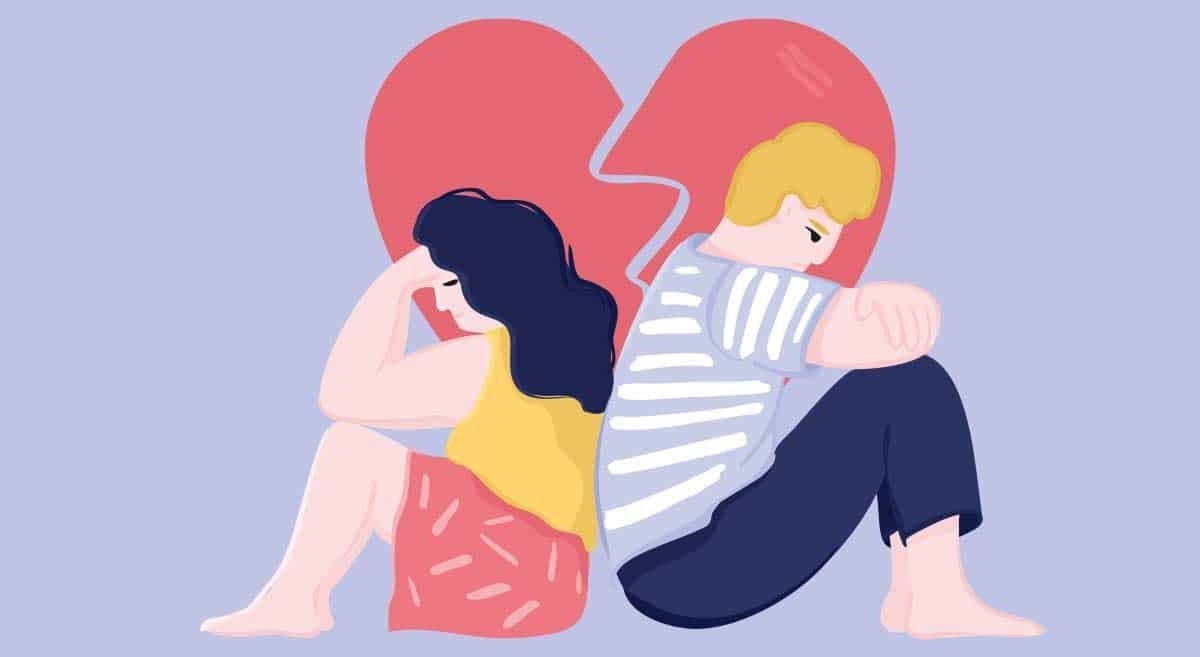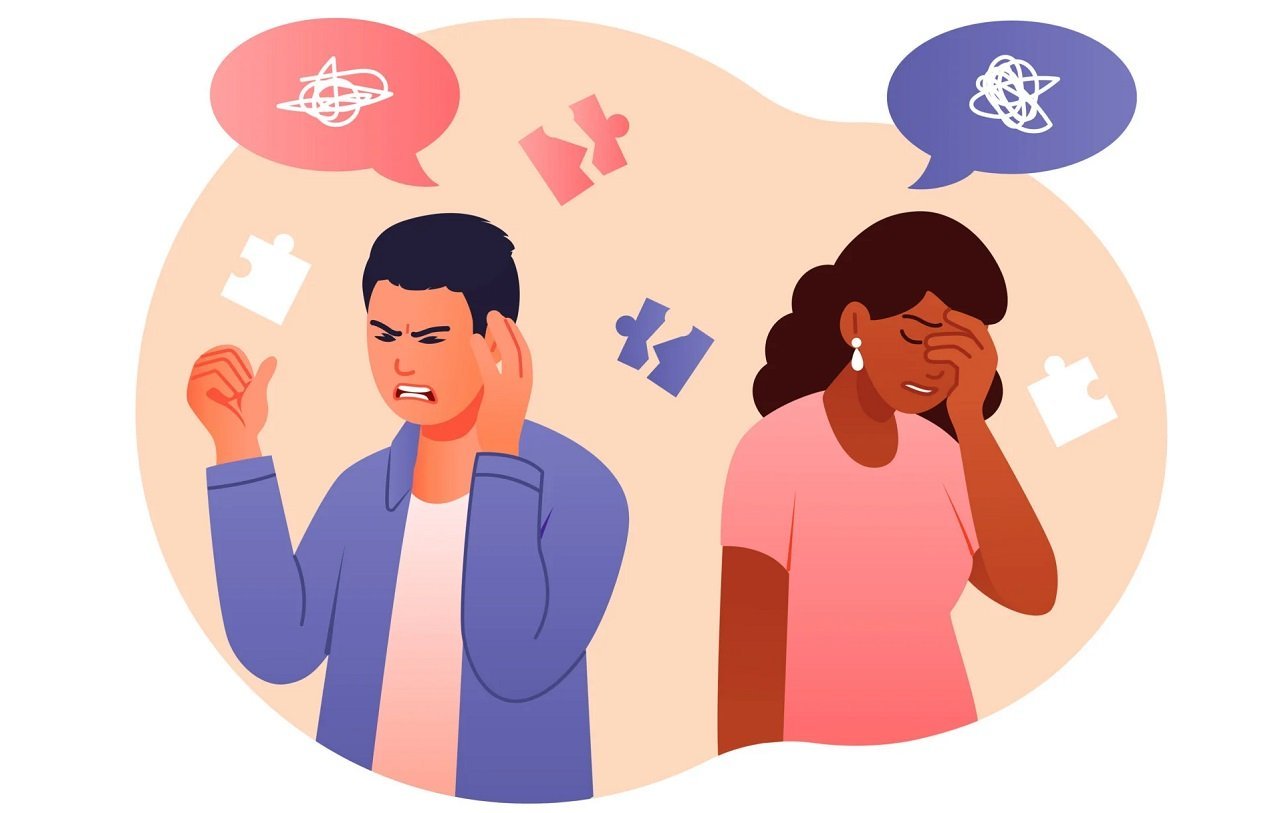You may not realize that there are various reasons why individuals choose to remain in unhealthy relationships, even when it seems illogical to outsiders.
Despite the negative impact on your well-being, there is a complex interplay of emotions and circumstances that keep you tethered to this situation.
Understanding these underlying factors can shed light on the intricate web that keeps you entangled, leading to insights that may surprise you.
Reliance or Codependency
If you find yourself constantly relying on your partner for emotional support and validation, you may be experiencing a form of codependency that can make it difficult to leave an unhealthy relationship. Emotional boundaries are important in any relationship, as they define where your feelings end, and your partner’s begin. Maintaining self-awareness to recognize when these boundaries are being crossed is key.
Striking a balance between independence and dependence is necessary; healthy relationships thrive on interdependence, where both partners support each other while maintaining their individuality.
Communication skills play a significant role in handling codependency issues. Expressing your needs and emotions openly and honestly is crucial. Developing the ability to set boundaries and communicate them effectively is an important step towards building a healthier relationship dynamic.
Believing that abuse is normal
Believing that abuse is normal can be a dangerous mindset that traps individuals in toxic relationships, perpetuating cycles of harm and manipulation. It’s essential to recognize the impact of societal conditioning and toxic patterns that can lead one to accept mistreatment as standard in relationships. Emotional manipulation and the erosion of healthy boundaries often go hand in hand, blurring the lines between acceptable behavior and abuse.
Here are key factors to ponder when it comes to this situation:
- Gaslighting Tactics: Perpetrators may use gaslighting to distort reality, making victims question their own perceptions and sanity.
- Power Dynamics: Unequal power dynamics can contribute to the normalization of abuse, with the abuser exerting control and fostering dependency.
- Self-Blame: Victims may internalize blame, believing they deserve the mistreatment, further perpetuating the cycle of abuse.
Understanding how these elements interplay is essential in breaking free from the grasp of toxic relationships. Recognizing the signs of normalization of abuse, self-blame tendencies, and the insidious nature of gaslighting can be pivotal steps towards reclaiming autonomy and fostering healthier connections.
Low Self -Esteem
Low self-esteem can greatly impact your perception and experience in a relationship, influencing how you view yourself and what treatment you believe you deserve. When struggling with low self-esteem, negative self-talk can become a constant companion, eroding your confidence and sense of self-worth. This can lead you to accept treatment that’s less than what you truly deserve, as you may believe it’s all you’re worthy of.
Therapy can be a valuable tool in addressing low self-esteem, helping you to identify and challenge negative thought patterns and build self-validation. It can empower you to set healthy boundaries and prioritize self-care, nurturing your self-worth and confidence. Through self-acceptance and growth, you can gradually enhance your self-esteem and cultivate a stronger sense of empowerment in your relationships. Remember, investing in yourself is essential for creating fulfilling and respectful connections that align with your true worth.
Pregnancy or Parenting
Experiencing pregnancy or managing the challenges of parenting can greatly impact your relationship dynamics and overall well-being. The journey of parenthood is filled with highs and lows, which can strain even the strongest of relationships.
Here are some key factors that may contribute to the complexities you face:
- Sleep deprivation: The constant waking up at odd hours to tend to your child’s needs can lead to exhaustion, irritability, and decreased patience, affecting how you communicate with your partner.
- Financial stress: The added expenses of raising a child, from diapers to education, can put a strain on your finances, leading to disagreements on priorities and spending habits.
- Parenting differences: Variances in parenting styles, disciplinary approaches, and expectations can create tension between partners, causing conflicts and misunderstandings.
Finding ways to navigate these challenges together, seeking support when needed, and developing healthy coping mechanisms can help strengthen your relationship and create a nurturing environment for both you and your child.

Change
Amidst the challenges of a relationship, maneuvering through periods of change can test the strength and adaptability of both partners. Negative patterns can become deeply ingrained, making it difficult to break free from familiar but harmful behaviors. Fear of change often plays a significant role in why individuals choose to remain in unhealthy relationships. The uncertainty of what lies ahead can be intimidating, even if the current situation is far from ideal.
In seeking validation from a partner, individuals may overlook the need for personal growth and change. Emotional attachment can create a powerful bond that keeps individuals tethered to a relationship, even when it no longer serves them. Feeling trapped in a cycle of dysfunction can cloud judgment and make it challenging to envision a different, healthier future.
Recognizing these dynamics and understanding the reasons behind them is important in breaking free from the shackles of an unhealthy relationship. It takes courage and self-awareness to confront the need for change and take steps towards a more fulfilling and positive path.
Settle
When contemplating whether to stay in an unhealthy relationship, it’s important to ponder if you’re settling for less than you deserve. It’s understandable that various factors can contribute to this feeling of settling:
- Emotional Attachment and Fear: Your emotional investment in the relationship and the fear of starting over can make it difficult to leave, even when you know it’s unhealthy.
- Comfort Zone and Familiarity: The familiarity and routine of the relationship, even if toxic, may feel more comfortable than the uncertainty of being alone or seeking a healthier partnership.
- Lack of Options and Financial Dependence: Limited options or financial dependence on your partner can make it challenging to leave, trapping you in a situation where settling seems like the only choice.
It’s important to recognize these factors and reflect on whether they’re influencing your decision to stay in an unhealthy relationship. Remember, you deserve a relationship that uplifts and supports you, rather than one that makes you feel stuck or unfulfilled.
Good-enough
Feeling content with mediocrity in a relationship can lead to settling for less than you truly deserve. It’s important to recognize your self-worth and understand that you deserve a relationship that uplifts you. When you start compromising on your values and lowering your standards, you risk losing sight of what a healthy relationship should entail.
Self-care is essential in maintaining a healthy relationship. This involves setting boundaries that protect your emotional well-being and communicating your needs effectively.
Empowerment plays a significant role in ensuring you don’t settle for a ‘good enough’ relationship. By empowering yourself to prioritize your happiness and fulfillment, you’re less likely to accept less than you deserve. Remember, communication is key in any relationship. Expressing your feelings and concerns openly can help bridge gaps and prevent feelings of resentment from festering.
Ultimately, by valuing your self-worth, practicing self-care, setting boundaries, communicating effectively, and empowering yourself, you can avoid settling for a relationship that’s less than fulfilling.
Cognitive Dissonance
Experiencing cognitive dissonance in a relationship can create inner conflict and confusion as your beliefs and actions may contradict each other. This psychological discomfort often leads to rationalization, where you try to justify staying in the relationship despite knowing it’s unhealthy. Here are some key aspects to contemplate:
- Conflicting beliefs: You may hold onto conflicting beliefs about the relationship, finding it hard to reconcile what you want with what’s actually happening. This internal struggle can lead to justifications for staying, even when deep down you know it’s not right.
- Uncomfortable truths: Facing challenging truths about the relationship can be intimidating, leading to denial as a coping mechanism. It’s common to ignore red flags or downplay issues to avoid the pain of acknowledging the reality of the situation.
- Inner conflict: Engaging in mental gymnastics to make sense of conflicting emotions can be exhausting. However, with time and effort, comes acceptance, where you begin to understand your feelings and take steps towards a healthier mindset.
Personal Needs
Consider your personal needs as a fundamental aspect influencing your decision-making within a relationship. Your emotional fulfillment is important for a healthy relationship. If your partner consistently disregards your feelings or undermines your emotions, it can lead to a sense of emptiness and dissatisfaction. Self-care plays a significant role in maintaining a balanced and fulfilling relationship. It’s important to prioritize your well-being and set aside time for activities that nurture your mental and physical health.
Communication skills are crucial in addressing your personal needs within a relationship. Effective communication can help convey your desires, boundaries, and concerns to your partner. If these needs aren’t met, it can strain the relationship and lead to resentment. Establishing personal boundaries is key to maintaining a healthy dynamic. Respecting each other’s boundaries fosters mutual trust and understanding, creating a supportive environment for both individuals. Recognizing and addressing your personal needs is important for building and sustaining healthy relationships.

Frequently Asked Questions
How Can Societal Expectations Play a Role in Keeping Someone in an Unhealthy Relationship?
Societal expectations can trap you in unhealthy relationships. Family pressure, emotional manipulation, and gender roles can make it hard to leave. Feeling isolated and lacking support can keep you stuck, affecting your self-worth.
Are There Any Cultural Factors That Contribute to Staying in an Unhealthy Relationship?
Cultural factors like family pressure, gender roles, social stigma, lack of support, and cultural norms can all influence why individuals stay in unhealthy relationships. Understanding these dynamics is essential for breaking free and seeking help.
How Does Past Trauma Influence Someone’s Decision to Stay in an Unhealthy Relationship?
When childhood trauma shapes your trust issues, attachment style, and emotional wounds, staying in an unhealthy relationship may feel familiar. Low self-worth can keep you trapped, making it hard to break free.
What Role Does Financial Dependence Play in Staying in an Unhealthy Relationship?
Financial dependence can trap you in an unhealthy relationship. Emotional manipulation, power dynamics, lack of support, limited options, and economic control play significant roles. Recognizing these influences is important for understanding why leaving may seem impossible.
How Can Fear of Being Alone Impact Someone’s Decision to Stay in an Unhealthy Relationship?
Feeling terrified of solitude can lead you to endure emotional manipulation, struggle with self-worth, co-dependency, fear judgment, and lack support. The fear of being alone in an unhealthy relationship can overshadow your well-being.
Conclusion
You may feel trapped in an unhealthy relationship, but remember, you deserve better. Don’t let fear or comfort keep you from finding true happiness.
Just like a butterfly breaking free from its cocoon, you have the strength to spread your wings and soar towards a brighter future. Trust in yourself, prioritize your well-being, and embrace the unknown.
It’s time to break free and create a life filled with love and respect.





